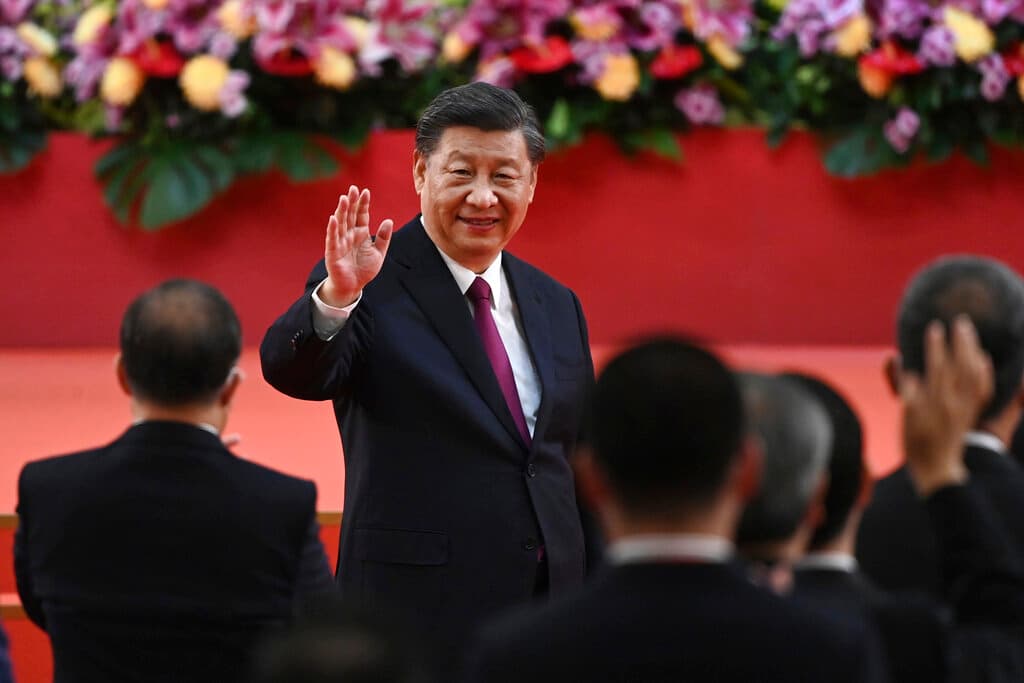Communist China Confiscating Wealth Like, So To Speak, There’s No Tomorrow
The sentencing of a billionaire bodes ill for Xiconomics, and the future of communist rule on the mainland.

Confiscating wealth — as Beijing did today in sentencing a Chinese-Canadian billionaire, Xiao Jianhua, after a mock “corruption” trial — might benefit President Xi, but it bodes ill for Xiconomics, and, more broadly, for Communist China’s future.
Mr. Xiao, the founder of the Tomorrow Holdings conglomerate, was last seen in public in 2017, when authorities took him away in a wheelchair from a suite at the Hong Kong Four Seasons hotel. Today he was sentenced in Shanghai to 13 years in prison. Tomorrow Holdings was slapped with the largest fine in China’s history, $8.1 billion, which all but erased Mr. Xiao’s wealth.
The months-long trial at Shanghai was conducted in secrecy. Today’s sentencing was unmentioned by the state-owned press. No Canadian officials were allowed to observe the proceedings, even though the Chinese-born Mr. Xiao is a citizen of Canada, as prosecutors cited a selectively-applied Chinese law forbidding dual citizenship.
Once highly connected with the top echelons of Beijing’s Communist Party, Mr. Xiao long ago left China for Hong Kong, and moved most of his financial assets to Canada. By prosecuting him, Mr. Xi “is sending signals to all Chinese foreign passport holders and Chinese in Hong Kong, that no one will be safe,” an American businessman said, requesting anonymity as he maintains ties to factories in China.
Mr. Xiao’s “kidnapping, arrest, closed trial, and now sentencing just reinforce to those who thought they could start new lives in new countries that if the Chinese Communist Party wants to punish you, there is a growing chance they might be able to do so,” a Beijing watcher at the Foundation for Defense of Democracies, Cleo Pascal, told the Sun.
Moreover, Ms. Pascal adds, the Xiao affair “is another of Xi’s ‘no one is untouchable’ teaching moments.” She referred to the wide net that Mr. Xi has cast to cut down foes and perceived enemies that has intensified as the October-November Communist Party’s 20th congress nears.
The Beijing strongman is widely expected to recapture the party’s chairmanship, extending his rule for a third five-year term as the party chief and president of the country. Additional purges are expected in the three months before the party’s gathering begins.
In addition to targeting robber barons who acquired wealth in the early days of China’s easing up of state controls over the economy, Mr. Xi has clipped the wings of genuine entrepreneurs — including the founder of the Alibaba group, China’s equivalent of Amazon, Jack Ma. Before his near disappearance from the public, Mr. Ma was widely seen as one of the country’s most successful and innovative businessmen.
According to several sources who spoke with the Sun, the recent draconian lockdowns at Shanghai under Mr. Xi’s “zero-Covid” policy was yet another signal to a powerful group of politicians and businessmen based in that city. Widely known as the “Shanghai gang,” the group, which is headed by a former president, Jiang Zemin, is opposed to Mr. Xi’s re-election.
Chairman Mao’s Cultural Revolution, which from its onset in 1966 purged relics of China’s pre-Communist history, as well as anyone perceived as a Mao enemy, was traumatic for the country. Mao’s successor, Deng Xiaoping, then established a system that allowed factions inside the Communist Party to compete for power.
Two major factions emerged: The Chinese Communist Youth League’s boss, Hu Jintau, rose to power first. He was then succeeded by the Shanghai Gang’s Mr. Jiang, maintaining a competition for power between the two factions.
Mr. Xi rose to power as an avowed member of the Shanghai gang — and immediately went on to form his own clique. His loyalists were gradually installed in regional power centers, pushing aside CCYL and Shanghai gang members.
To prevent future Mao-like cults of personality, Deng instituted a limit of two five-year terms at the top of the party. Mr. Xi is now planning an unprecedented third term, much to the chagrin of what remains of the other party’s factions.
As October nears, “I would be very curious to see which of the seven politburo members will be out,” the American businessman told the Sun, referring to the Xi-headed top party body that is most responsible for selecting its next chief.
In addition to purging political opponents Mr. Xi has increasingly gone after anyone who can threaten his tight grip over the economy. China’s experiment with managed capitalism is now ending. For decades, policies that have allowed non-state wealth ownership helped parts of the country to emerge from deep poverty. China became the world’s second-largest economy, the middle class expanded, and a whole generation of people aspiring to become wealthy grew under that new China.
Mr. Xi’s political power grab and his control over all economic levers present a major threat to all that. The economy is already slowing and innovators are frozen with fear. Those, like Mr. Xiao, who managed to escape and live abroad now know that Mr. Xi is coming for them, too.

